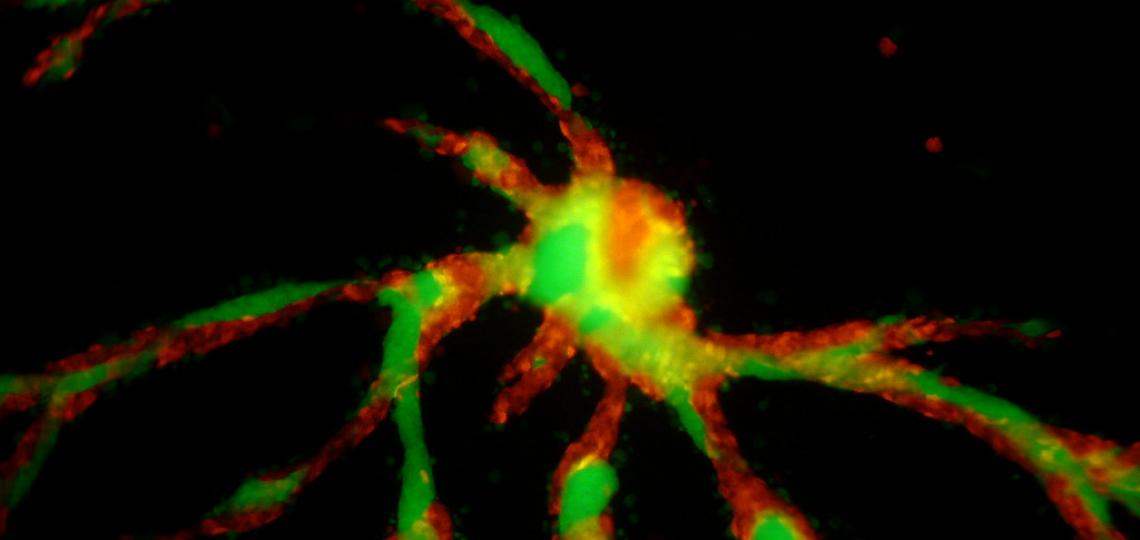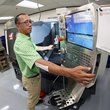
Faculty Research
Whether you already know the specific area of genetics or genomics research you want to pursue or are still exploring, you will find faculty at Baylor College of Medicine who are working at the cutting-edge of your field of interest. You will have the opportunity to complete rotations in laboratories working in diverse areas using a variety of techniques and organisms to conduct basic, translational and clinical research.
Faculty Research by Topics
- Chromosomes, Chromatin, DNA and Genome Biology
- Gene Expression and Regulation
- Epigenetics and Imprinting
- Development and Evolution
- Metabolism and Nutrition
- Molecular Basis and Mechanisms of Human Diseases and Traits
- Neuroscience and Behavior
- Systems Biology, Computational Biology, Population Genomics and Statistical Genetics
Faculty Research by Model Organisms
- Human
- Vertebrate model organisms
- Invertebrate model organisms
- Other eukaryotic model organisms
- Prokaryotic model organisms and viruses
Faculty Research by Experimental Approaches
- Human genetics & genomics
- Model organism genetics & genomics
- Biochemistry & molecular biology
- Structural biology
- Cell Biology
- Physiology
- Pharmacology
- Computational Biology and bioinformatics
Discoveries to Disease
In the Texas Medical Center, there are no boundaries separating research and clinical care. Basic, translational and clinical researchers share buildings with clinical care providers and labs are mere steps away from clinics and hospitals. Whether working at the molecular, cellular or organismal level, our researchers maintain perspective on how their work may impact human disease and health.
BCM’s contributions to advancing the study of genetics and genomics have included:
- Determining the sequences of chromosomes 3, 12 and part of X as part of their role as one of three centers to complete the Human Genome Project
- Leading sequencing of many animal genomes, including the mouse, rat, fruit fly, rhesus monkey, honey bee, sea urchin, marmoset, orangutan, and cow
- Describing the first case of uniparental disomy, in which a child receives both copies of a gene from one parent
- Pioneering DNA microarray technology that streamlines diagnosis of genetic and chromosomal diseases
- Discovering the gene that causes Rett syndrome, a post-natal genetic disorder that affects mainly girls, and many other neurodevelopmental and neurological diseases
- Identifying new genetic variants in a cartilage protein that results in a lethal form of the brittle bone disease called osteogenesis imperfecta, and many other skeletal disorders
- Sequencing and annotating the first personalized genome sequence, that of Dr. James Watson, Nobel laureate who described DNA’s double helix
- Conducting the first successful surgery on the human genome.
Research Resources
As you begin your career in research it is impossible to predict where your investigations will lead. Therefore, it is essential to have access to diverse resources. This includes not only equipment, but experienced individuals available to help you identify the resources you need and master their use.

Human Genome Sequencing Center
The Baylor College of Medicine Human Genome Sequencing Center (BCM-HGSC) was established in 1996 when the National Human Genome Research Institute (NHGRI) designated Baylor College of Medicine as one of six pilot programs for the final phases of the Human Genome Project (HGP). Then in 1999, the Center was chosen as one of three sites from the pilot program to complete the HGP.
Today, the BCM-HGSC employs more than 200 staff, and it occupies more than 36,000 square feet. The major activity of the BCM-HGSC is high-throughput DNA sequence generation and the accompanying analysis. The center currently operates multiple sequencing platforms. The sequence data generated by these machines is analyzed in a complex bioinformatics pipeline, and the data are deposited regularly in the public databases at the National Center for Biotechnology Information (NCBI). This ensures that the worldwide research community has timely access to the data.
The BCM-HGSC is also involved in developing the next generation of DNA sequencing and bioinformatics technologies that will allow greater scientific advances in the future.

Advanced Technology Cores
Advanced technology core laboratories provide state-of-the-art instrumentation and technologies as well as consultation on experimental design, data analysis and training. Through the cores, you will not only gain access to tools and techniques that support your research, you will also receive training and mentorship in how to leverage these tools to develop innovative approaches to scientific challenges.
Core resources include laboratories for microarray analysis, next-generation sequencing, production of transgenic and knockout mice, mouse phenotyping, microscopy and imaging, confocal microscopy, high throughput screening, siRNA screening and other techniques.
View the videos below for a tour of each of these Advanced Technology Cores located at Baylor College of Medicine:

Texas Medical Center
As a member of the Texas Medical Center, Baylor College of Medicine leverages the resources of the world’s largest medical complex. In addition to supporting collaborations with the many hospitals, schools and research institutes in the TMC, the Center also facilitates state of the art research through specialized resources, including the TMC Innovation Institute, the TMC Library, and TCM Health Policy Institute.

More Resources
The entities listed here are just a small sampling of the inter-disciplinary research resources at BCM.
Dr. Huda Zoghbi discusses her study featuring a three-pronged approach used in animal models to help subdue early events that occur in the brain long before symptoms of Alzheimer’s disease are evident.
 Credit
Credit
In this video, done in conjunction with the publication of their research in Cell Stem Cell, Dr. Margaret Goodell and M.D./Ph.D. student, Joanne Ino Hsu, discuss their findings that showed cytotoxic chemotherapies put patients at risk for future hematopoietic malignancies.
Dr. Benjamin Arenkiel, McNair Scholar and associate professor of molecular and human genetics and neuroscience, discusses his findings published in Nature on acetylcholine's role in appetite control in mice.








